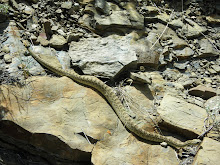The figure below was lifted from the New York Times story, and shows the current estimates, in cash money, of the value of all the various types of raw mineral resources estimated to be present in Afghanistan. It's a lot of dollars,for sure!

The science behind the estimates is pretty interesting. In 2004, the USGS started up a project to survey Afghanistan, specifically in terms of water, hydrocarbons, and mineral resources. As part of this, they also spent a fair bit of time pouring over the old Afghan Survey maps and reports (from happier times), as well as the Soviet data. Of course, a lot of these works were 30 years old or so, and hadn't been touched during the bad old days of the Taliban. But, according to the USGS, they were interesting enough to warrant updated surveys, including magnetic and gravity studies over much of the interesting mineralization zones. The USGS has a nifty page, with a lot of summaries, downloadable maps and reports, and history of the project available here. It's neat stuff, and of course, the Geology of Afghanistan is pretty interesting reading.
Although it's great that Afghanistan has something else to possibly develop that could outstrip their current economic model (which, as of right now, is based solely on opium and raw human tragedy), there are some serious concerns, of course. First and foremost, lots of countries in History have had lots of mineral wealth, and it didn't do them to well, did it (Potosi comes to mind)? Afghanistan, ripped to shreds as it is by violence, is ripe for neoimperialist exsanguination, especially if there is a feeling that some countries are "owed" a bit of wealth do to previous investment. The rampant corruption in the Afghan government goes hand in hand with the potential for disaster; apparently, the Afghan Minister of Mines has already been dismissed do to a bribe scandal that involved Chinese copper mining interests.
And, of course, that's another problem on the horizon, too; a return to the "Great Game" of empire building in central Asia seems like a distinct possibility, especially where lots of world powers congregate around raw materials. As the New York Times story points out, China is already making overtures to Afghanistan regarding expanded mining operations.
Finally, what about the environmental and social impacts of opening up mining, willy-nilly, in a dirt poor country ravaged by four decades of war and poverty? Mining is brutal, hard work, even when done right; when it's in a far away place out of public scrutiny, troubles can start (just look at Butte, Montana, or Anaconda, Montana, for examples of home-grown exploitation and environmental/health disasters as a result of poor mining practices).
One hopes that the report of untapped mineral wealth in Afghanistan is good news; it certainly would be a nice economic booster for a country that hasn't had a good decade in a few hundred years. However, the natural pessimist in me can't help but worry about the potential for corruption and further exploitation of a country that has already experienced more than it's fair share of troubles.



1 comment:
Due to, man. DUE to.
Good article.
Post a Comment